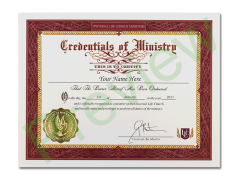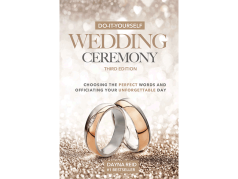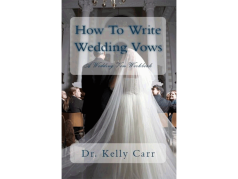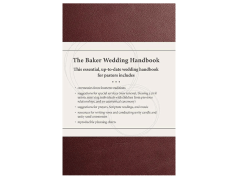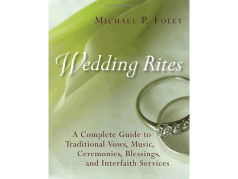How to Get a Minister's License

Becoming a licensed minister is a significant step for those who feel called to serve their community through religious leadership. A minister's license allows individuals to perform various duties such as officiating weddings, conducting funerals, and leading religious services. The process of obtaining a minister's license can vary depending on the denomination, state laws, and personal goals. Here is a comprehensive guide on how to get a minister's license.
1. Understanding the Role of a Minister
Before pursuing a minister's license, it's important to understand the responsibilities and expectations of a minister. A minister typically:
- Leads religious services and worship.
- Provides spiritual guidance and counseling to individuals and groups.
- Conducts ceremonies such as weddings, baptisms, and funerals.
- Prepares and delivers sermons.
- Oversees religious education programs.
- Having a clear understanding of these duties will help you determine if this path aligns with your personal calling and aspirations.
2. Choose a Religious Denomination
Different denominations have distinct requirements and processes for ordination and licensing. Some of the major Christian denominations include Catholicism, Protestantism, Orthodoxy, and Evangelicalism. Each denomination has its own theological beliefs, practices, and criteria for becoming a minister.
- Catholic Church: Becoming a Catholic priest involves extensive education and training, including attending seminary, obtaining a theology degree, and being ordained by a bishop.
- Protestant Churches: Requirements vary widely among Protestant denominations. Some may require a degree from a seminary, while others may have less formal education requirements.
- Non-Denominational and Independent Churches: These churches often have more flexible requirements and may allow individuals to become licensed through online ordination services.
3. Education and Training
Most denominations require some form of education and training before granting a minister's license. This can range from formal theological education to more informal training programs.
- Seminary or Theological School: Many denominations require prospective ministers to attend seminary or a theological school. These institutions offer programs in theology, biblical studies, pastoral care, and other relevant subjects. Degrees can range from a Master of Divinity (M.Div.) to a Doctor of Ministry (D.Min.).
- Bible Colleges: Bible colleges offer undergraduate programs in religious studies and ministry. These programs provide foundational knowledge and practical skills for ministry work.
- Local Church Training Programs: Some churches offer their own training programs for prospective ministers. These programs may include coursework, mentorship, and practical ministry experience.
4. Ordination Process
Ordination is the process by which an individual is consecrated as a minister. The specific steps and requirements for ordination vary by denomination and can include:
- Application: Submit an application to the denominational body or local church. This may include personal information, educational background, and a statement of faith.
- Background Check: Some denominations require a background check to ensure the applicant's suitability for ministry.
- Interviews and Examinations: Candidates may undergo interviews and examinations to assess their theological knowledge, pastoral skills, and personal character.
- Ordination Ceremony: Once approved, candidates participate in an ordination ceremony, which is a formal recognition of their call to ministry. This ceremony may include laying on of hands, prayers, and a charge to the new minister.

5. Obtaining a Minister's License
After ordination, you may need to obtain a minister's license to legally perform certain duties such as officiating weddings. The process for obtaining a license varies by state and denomination.
- State Requirements: Check with your state's government office (such as the Secretary of State or county clerk) for specific requirements. Some states require ministers to register with the state or county before performing weddings.
- Denominational Requirements: Your denomination may have additional requirements for licensing. This could include continuing education, adherence to a code of conduct, or regular renewal of the license.
- Online Ordination: For those seeking a more flexible and quicker route, online ordination services such as the online ordination service we offer is an easy way to become ordained.
6. Maintaining Your License
Once you have obtained your minister's license, it is important to maintain it by fulfilling any ongoing requirements set by your denomination or state. This may include:
- Continuing Education: Many denominations encourage or require ministers to engage in continuing education to stay current with theological developments and pastoral practices.
- Renewal of License: Some states and denominations require periodic renewal of the minister's license. This may involve submitting paperwork, paying a fee, or providing proof of continuing education.
- Adherence to Ethical Standards: Ministers are expected to adhere to high ethical standards in their personal and professional conduct. Violations of these standards can result in disciplinary action or revocation of the license.
7. Building a Ministry
Ministers are expected to adhere to high ethical standards in their personal and professional conduct. Violations of these standards can result in disciplinary action or revocation of the license.
- Finding a Position: Seek opportunities within churches, religious organizations, or community groups. This could include pastoral positions, chaplaincy roles, or outreach programs.
- Networking: Connect with other ministers, denominational leaders, and community members to build a support network and find opportunities for collaboration.
- Serving the Community: : Focus on serving your community through preaching, teaching, counseling, and outreach. Building relationships and meeting the spiritual needs of those you serve are central to effective ministry.
Obtaining a minister's license is a multi-step process that requires careful planning, dedication, and a genuine calling to serve. By understanding the role of a minister, choosing the right denomination, pursuing necessary education and training, navigating the ordination process, and fulfilling legal requirements, you can achieve this important milestone. Maintaining your license and building a ministry are ongoing commitments that will enable you to make a meaningful impact in the lives of others. Whether you pursue a traditional path or opt for online ordination, becoming a licensed minister is a rewarding journey that opens the door to various opportunities for service and leadership in your community.
